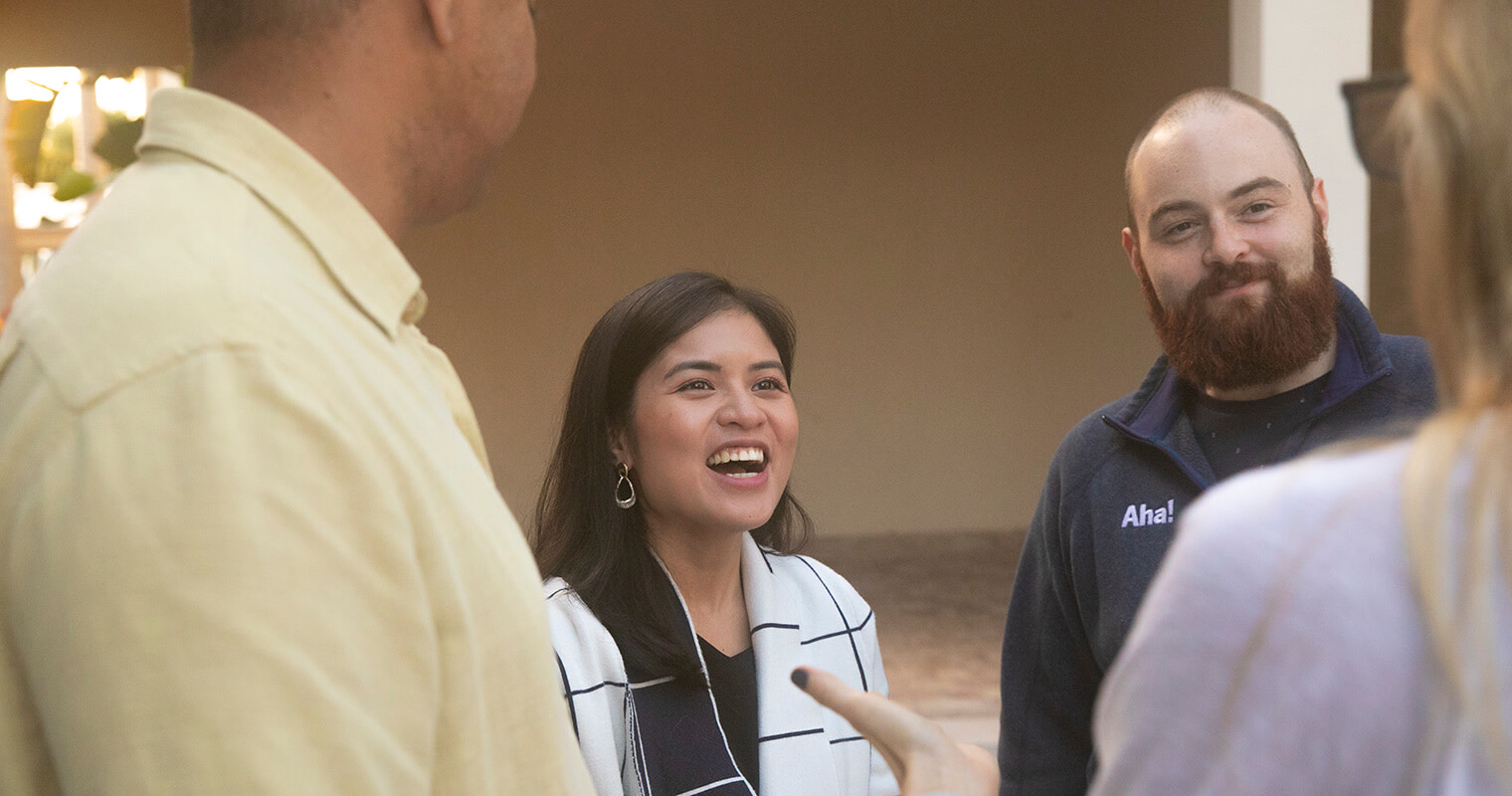
Why Your Boss’s Tiny Actions Have a Huge Effect
We are all connected. Our actions have profound consequences on the people and communities around us. This is especially true at work, where we spend the majority of our time. Your actions — good and bad — directly impact your teammates and affect how much the collective group is able to accomplish. Think about your own boss’s words and actions. Even tiny actions can feel huge. This is the ripple effect.
There is a powerful responsibility in knowing your decisions and deeds impact others.
The term “ripple effect” is used widely, in everything from psychology and sociology to macroeconomics and computer science. But in the context of interpersonal success at work, it describes the chain reaction you set in motion with your words or deeds. It is the incremental and cumulative effect you have on teammates, managers, and customers.
I am hyper-aware of the influence I have on others as the CEO of Aha! Along with my co-founder Chris and our leadership team, we are responsible for defining the company vision and creating an environment where people can do great work. My decisions directly and deeply impact the team, especially whether or not folks feel appreciated for their contributions.
But you do not have to be a CEO (or even a manager) to recognize the influence you wield. Every decision you make is consequential — whether it is sharing an idea, expressing gratitude for a colleague, or choosing to throw credit so someone else can shine.
Even a small gesture like welcoming a new teammate on their first day can have a real effect.
Many of us underestimate (or are simply unaware of) how people around us perceive our behavior. But when you are purpose-driven, you can make a positive contribution. Here are a few questions to consider before you speak or take action:
Does it help? Reflect on whether your words or actions will improve a situation. This could be assisting a teammate who is struggling with an assignment by sharing your knowledge or simply offering support. You can bring intentionality to the tough conversations too. When you give feedback, make it constructive and strive to tell the truth with kindness.
Does it multiply? You can broaden your ripple effect so that multiple people benefit. A potent way to do this is to mentor. Sharing your experience and advice, even informally, can have a big impact on someone’s future success. And this gets amplified when that person eventually gives their own guidance to others, following your example.
Does it uplift? Everyone appreciates a kind gesture or cheering on. But sometimes you need to ask people difficult questions and challenge assumptions. Uplifting requires honesty too — challenging your teammates to work hard and stretch their thinking.
Does it last? Quick reactions require minimal thought and effort. For example, you might react harshly in the moment when a teammate makes a mistake. But if you can pause and choose a more long-term action, such as asking afterwards to learn more about the error, you can likely both learn a lasting lesson instead.
Small acts turn into ripples — which have the power to become waves.
It is how you make the world a more hopeful place one person at a time. Because ultimately, that is the legacy you leave behind. Whether your smile motivates a new teammate to do great work or your bold attitude continues to inspire a colleague to take action, you have the ability to deeply affect people’s lives. It really is true — we are all connected.
How are you influencing the people around you?
Our team is happy, productive, and hiring — join us!




